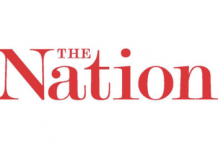by
Isabeau Doucet (Haiti Liberte)
Isabeau Doucet (Haiti Liberte)
During
the build up to and aftermath of the 2004 overthrow of Jean-Bertrand Aristide,
Haiti’s popular priest-turned-president, the Haitian and international press
reported two conflicting narratives. Even in the left-wing media office of ZNet,
where Justin Podur was an editor, stories filed from Haiti just “didn’t add
up.”
the build up to and aftermath of the 2004 overthrow of Jean-Bertrand Aristide,
Haiti’s popular priest-turned-president, the Haitian and international press
reported two conflicting narratives. Even in the left-wing media office of ZNet,
where Justin Podur was an editor, stories filed from Haiti just “didn’t add
up.”
“One is a story about a leader
becoming a dictator and getting overthrown, leaving a basket-case country in a
basket-case condition. The second is the story of a popular movement being
thwarted in its struggle for democracy and development and ending with a new
dictatorship imposed upon it,” writes Podur, Associate Professor in
environmental studies at Toronto’s York University, in his new book, Haiti’s New Dictatorship: The Coup, the
Earthquake and the UN Occupation.
becoming a dictator and getting overthrown, leaving a basket-case country in a
basket-case condition. The second is the story of a popular movement being
thwarted in its struggle for democracy and development and ending with a new
dictatorship imposed upon it,” writes Podur, Associate Professor in
environmental studies at Toronto’s York University, in his new book, Haiti’s New Dictatorship: The Coup, the
Earthquake and the UN Occupation.
Podur offers a timely and concise
political history of contemporary Haiti and a case study in “how a multilateral
violation of sovereignty is organized and carried out.” He draws on a wide
range of academic, journalistic, and human rights reports, as well as U.S.
embassy cables released by Wikileaks, to document how Haiti became a laboratory
“experiment in a new kind of imperialism.”
political history of contemporary Haiti and a case study in “how a multilateral
violation of sovereignty is organized and carried out.” He draws on a wide
range of academic, journalistic, and human rights reports, as well as U.S.
embassy cables released by Wikileaks, to document how Haiti became a laboratory
“experiment in a new kind of imperialism.”
Podur shows the total subordination
and outsourcing of a nation’s sovereignty to a decentralized, multilateral,
unaccountable network of foreign governments, international financial
institutions, aid organizations, transnational investors, and the United
Nations, all working in concert with local elites to rob Haiti of its hard-won
independence and democracy.
and outsourcing of a nation’s sovereignty to a decentralized, multilateral,
unaccountable network of foreign governments, international financial
institutions, aid organizations, transnational investors, and the United
Nations, all working in concert with local elites to rob Haiti of its hard-won
independence and democracy.
Starting with a brief history of
Haiti’s successful slave rebellion and founding as the first modern black
republic in 1804, Podur recounts the 1915-34 U.S. Marine occupation, the
Duvalier dynasty’s dictatorship, and the rise of the popular democratic
movement that toppled Jean-Claude “Baby Doc” Duvalier, eventually sweeping
Aristide to power. But the book centers mainly on the 2004 coup d’état and its
aftermath through to the 2010 earthquake, cholera epidemic, and illegitimate,
deeply flawed elections that brought the current government of President Michel
Martelly to power.
Haiti’s successful slave rebellion and founding as the first modern black
republic in 1804, Podur recounts the 1915-34 U.S. Marine occupation, the
Duvalier dynasty’s dictatorship, and the rise of the popular democratic
movement that toppled Jean-Claude “Baby Doc” Duvalier, eventually sweeping
Aristide to power. But the book centers mainly on the 2004 coup d’état and its
aftermath through to the 2010 earthquake, cholera epidemic, and illegitimate,
deeply flawed elections that brought the current government of President Michel
Martelly to power.
Podur’s book emerges from several
years of collecting files on Haiti and wanting to build on Peter Hallward’s
indispensable Damming the Flood: Haiti,
Aristide and the Politics of Containment (Verso, 2007). For readers who
have closely followed Haiti news post-coup, Podur’s book sometimes may seem
wanting in original research, reading like a compilation of news and reports.
But what it lacks in on-the-ground insight is made up for in spot-on analysis,
which will intrigue people interested in Haiti and the geopolitics of
contemporary imperialism. Moreover, Podur’s critique helps show how western
democracy has been rendered so feckless in a world where globalization is
dismantling public state structures and protections to better facilitate flows
of private transnational capital. The human and environmental damage inflicted
by this new dictatorship is more evident in Haiti, but the country is merely an
indicative microcosm of what privatization and deregulation are wreaking
everywhere in the capitalist world. Podur shows that the language of human
rights, sustainable development, and humanitarian aid is used to cloak Haiti’s
ever greater penetration by and subordination to transnational capital.
years of collecting files on Haiti and wanting to build on Peter Hallward’s
indispensable Damming the Flood: Haiti,
Aristide and the Politics of Containment (Verso, 2007). For readers who
have closely followed Haiti news post-coup, Podur’s book sometimes may seem
wanting in original research, reading like a compilation of news and reports.
But what it lacks in on-the-ground insight is made up for in spot-on analysis,
which will intrigue people interested in Haiti and the geopolitics of
contemporary imperialism. Moreover, Podur’s critique helps show how western
democracy has been rendered so feckless in a world where globalization is
dismantling public state structures and protections to better facilitate flows
of private transnational capital. The human and environmental damage inflicted
by this new dictatorship is more evident in Haiti, but the country is merely an
indicative microcosm of what privatization and deregulation are wreaking
everywhere in the capitalist world. Podur shows that the language of human
rights, sustainable development, and humanitarian aid is used to cloak Haiti’s
ever greater penetration by and subordination to transnational capital.
“There’s a historical vindictiveness
towards Haiti that has to do with the temerity of having overthrown colonialism
and abolished slavery,” said Podur in an interview. “Haiti and Aristide
represent a symbolic challenge to the international political and economic
order.”
towards Haiti that has to do with the temerity of having overthrown colonialism
and abolished slavery,” said Podur in an interview. “Haiti and Aristide
represent a symbolic challenge to the international political and economic
order.”
According to him, those who
supported the overthrow of Aristide – namely the tiny clique that owns and
enjoys the majority of Haiti’s property and privileges, as well as the U.S.,
Canada, France and their respective military, diplomatic and media corps, using
the “old trick” of branding the coup victim a human-rights-violating dictator –
should not also get to write the history of what happened. “Where old dictators
muzzled the press, the new dictatorship outcompetes its opponents in
propaganda,” writes Podur detailing how the media was an integral “part of the
coup infrastructure,” framing international opinion to approve of the overthrow
of Aristide at the time.
supported the overthrow of Aristide – namely the tiny clique that owns and
enjoys the majority of Haiti’s property and privileges, as well as the U.S.,
Canada, France and their respective military, diplomatic and media corps, using
the “old trick” of branding the coup victim a human-rights-violating dictator –
should not also get to write the history of what happened. “Where old dictators
muzzled the press, the new dictatorship outcompetes its opponents in
propaganda,” writes Podur detailing how the media was an integral “part of the
coup infrastructure,” framing international opinion to approve of the overthrow
of Aristide at the time.
“All sorts of thing can go on in the
name of human rights” said Podur. “It’s not a robust enough concept, and in
Haiti it was used as a part of the pre-emptive war doctrine.”
name of human rights” said Podur. “It’s not a robust enough concept, and in
Haiti it was used as a part of the pre-emptive war doctrine.”
Documenting how the post-coup
government was quantitatively worse than Aristide’s, Podur tallies up in
meticulous and gruesome detail the body count of thousands and the human rights
aberrations carried out by the U.S.-backed regime of de facto Prime Minister Gérard Latortue, whose death squads purged
the capital’s poorest neighborhoods in a campaign to demobilize and neutralize
the popular democratic Lavalas movement that had twice carried Aristide to
power.
government was quantitatively worse than Aristide’s, Podur tallies up in
meticulous and gruesome detail the body count of thousands and the human rights
aberrations carried out by the U.S.-backed regime of de facto Prime Minister Gérard Latortue, whose death squads purged
the capital’s poorest neighborhoods in a campaign to demobilize and neutralize
the popular democratic Lavalas movement that had twice carried Aristide to
power.
The reader sees clearly how the
“responsibility to protect” – or R2P in foreign policy lingo – provided the
excuse for a military intervention in 2004, replacing a democratically elected
president with a quantifiably worse military regime.
“responsibility to protect” – or R2P in foreign policy lingo – provided the
excuse for a military intervention in 2004, replacing a democratically elected
president with a quantifiably worse military regime.
Summary executions, disappearances,
political prisoners, and rigged elections all took place under the watch of
MINUSTAH, the United Nations “peacekeeping” force brought in to replace the
U.S., French and Canadian troops that first arrived in Haiti after Aristide was
victim of what Podur aptly calls “a geo-political kidnapping.” MINUSTAH not
only provided cover for the post-coup death squads, knowingly incorporated
paramilitary putschists into the police ranks, and systematically ignored any
human rights monitoring, the blue helmets even opened fire on civilians in
Haiti’s popular neighborhoods, effectively consolidating the coup by acting as
an outsourced military force in a country without an army of its own.
political prisoners, and rigged elections all took place under the watch of
MINUSTAH, the United Nations “peacekeeping” force brought in to replace the
U.S., French and Canadian troops that first arrived in Haiti after Aristide was
victim of what Podur aptly calls “a geo-political kidnapping.” MINUSTAH not
only provided cover for the post-coup death squads, knowingly incorporated
paramilitary putschists into the police ranks, and systematically ignored any
human rights monitoring, the blue helmets even opened fire on civilians in
Haiti’s popular neighborhoods, effectively consolidating the coup by acting as
an outsourced military force in a country without an army of its own.
Haiti’s governing institutions and
civil society were effectively paralyzed, well before the 2010 earthquake
reduced them to rubble. The 2004 coup has made each natural disaster and
political crisis another opportunity for greater external control. This is the
central dilemma for Haiti today and the effectiveness of what Podur calls the
“new dictatorship”: without sovereignty, power eschews all accountability.
Foreign donors, NGOs, shareholders, and financiers hold power to dictate
political and economic policies that have deadly consequences in Haiti, but
“the government is the only organization against which ordinary citizens can
make rights-based claims.”
civil society were effectively paralyzed, well before the 2010 earthquake
reduced them to rubble. The 2004 coup has made each natural disaster and
political crisis another opportunity for greater external control. This is the
central dilemma for Haiti today and the effectiveness of what Podur calls the
“new dictatorship”: without sovereignty, power eschews all accountability.
Foreign donors, NGOs, shareholders, and financiers hold power to dictate
political and economic policies that have deadly consequences in Haiti, but
“the government is the only organization against which ordinary citizens can
make rights-based claims.”
The cholera epidemic, now the worst
in the world with a death toll around 7,600 since Nepalese UN troops
inadvertently introduced it into Haiti in October 2010, is a case in point:
despite half a dozen studies, including the UN’s, pointing directly to the UN
latrines as the source and cause of the epidemic, the UN has refused to take
any responsibility, let alone apologize for its gross negligence.
in the world with a death toll around 7,600 since Nepalese UN troops
inadvertently introduced it into Haiti in October 2010, is a case in point:
despite half a dozen studies, including the UN’s, pointing directly to the UN
latrines as the source and cause of the epidemic, the UN has refused to take
any responsibility, let alone apologize for its gross negligence.
“One of the concepts I don’t think
the pro-coup forces in Haiti can co-opt is the concept of sovereignty,” said
Podur. “While it’s great that the world wants to protect women and human
rights, the strengthening of Haitian sovereignty should be the centrepiece of
any intervention.”
the pro-coup forces in Haiti can co-opt is the concept of sovereignty,” said
Podur. “While it’s great that the world wants to protect women and human
rights, the strengthening of Haitian sovereignty should be the centrepiece of
any intervention.”
Hence, The New Dictatorship is an important addition to the many books on
Haiti coming out around the earthquake’s third anniversary. Podur clearly
exposes the atrophying effect big foreign NGOs have had on the Haitian state’s
ability to function. Despite the generous and genuine international outpouring
of solidarity after the quake, Podur reveals the utter lack of accountability
that the new dictatorship’s myriad of institutions, both large and small, have
toward their supposed beneficiaries.
Haiti coming out around the earthquake’s third anniversary. Podur clearly
exposes the atrophying effect big foreign NGOs have had on the Haitian state’s
ability to function. Despite the generous and genuine international outpouring
of solidarity after the quake, Podur reveals the utter lack of accountability
that the new dictatorship’s myriad of institutions, both large and small, have
toward their supposed beneficiaries.





